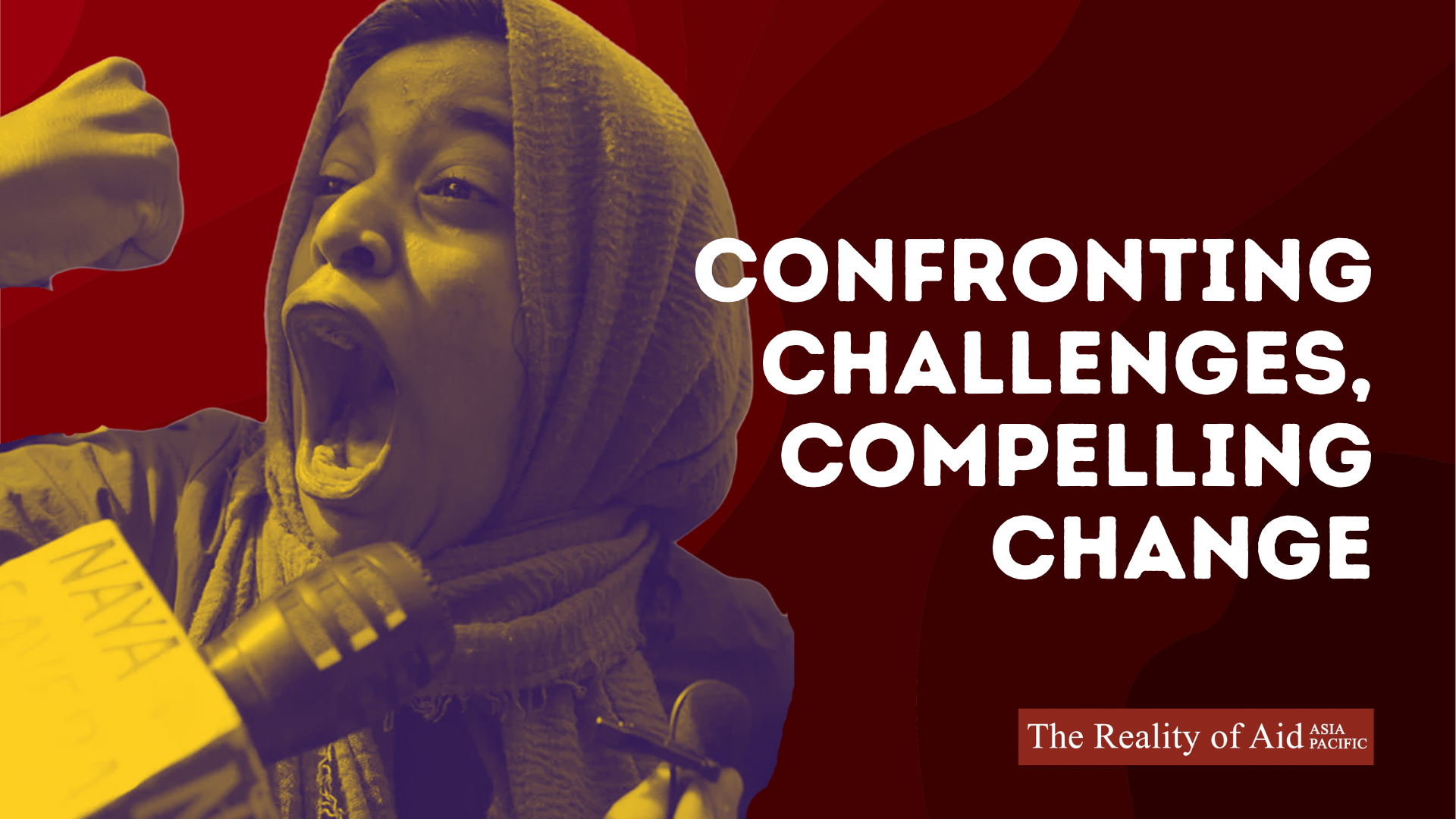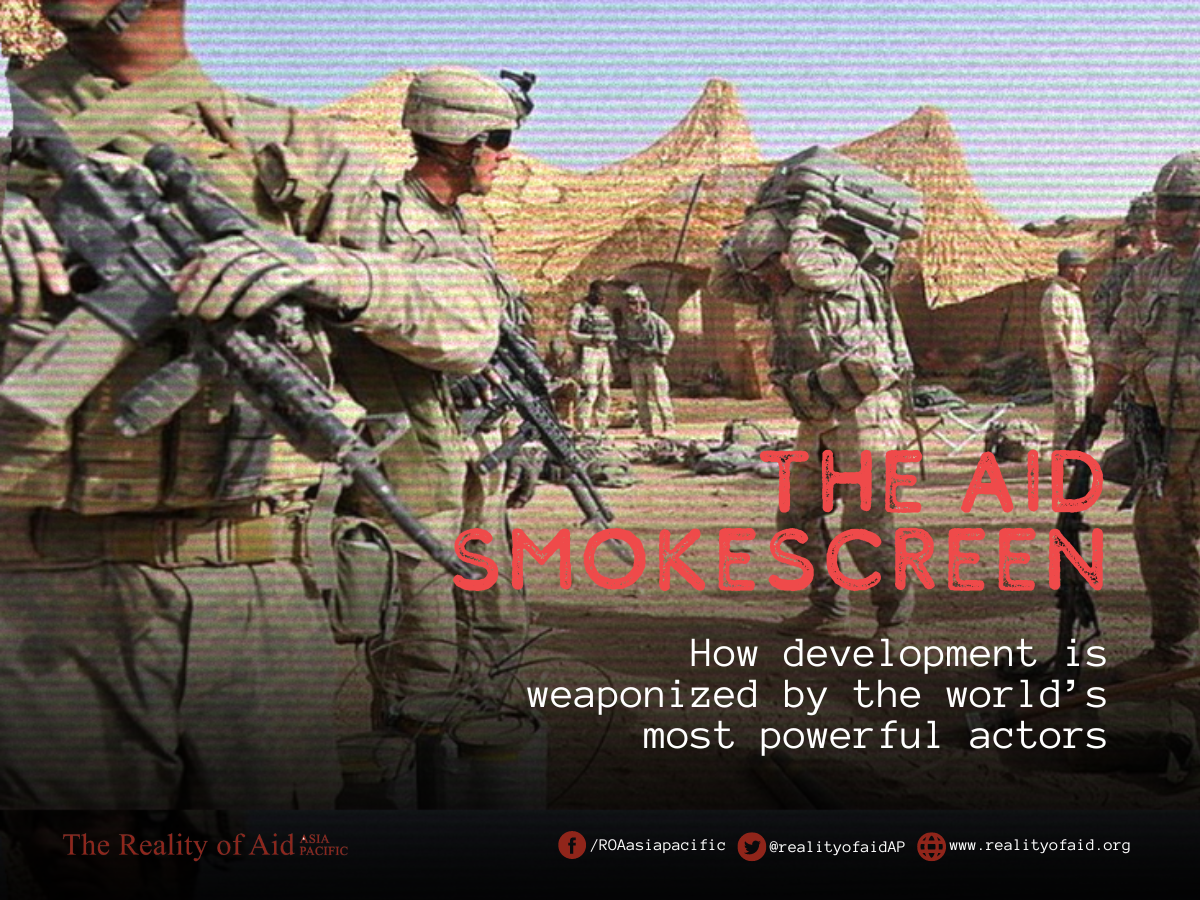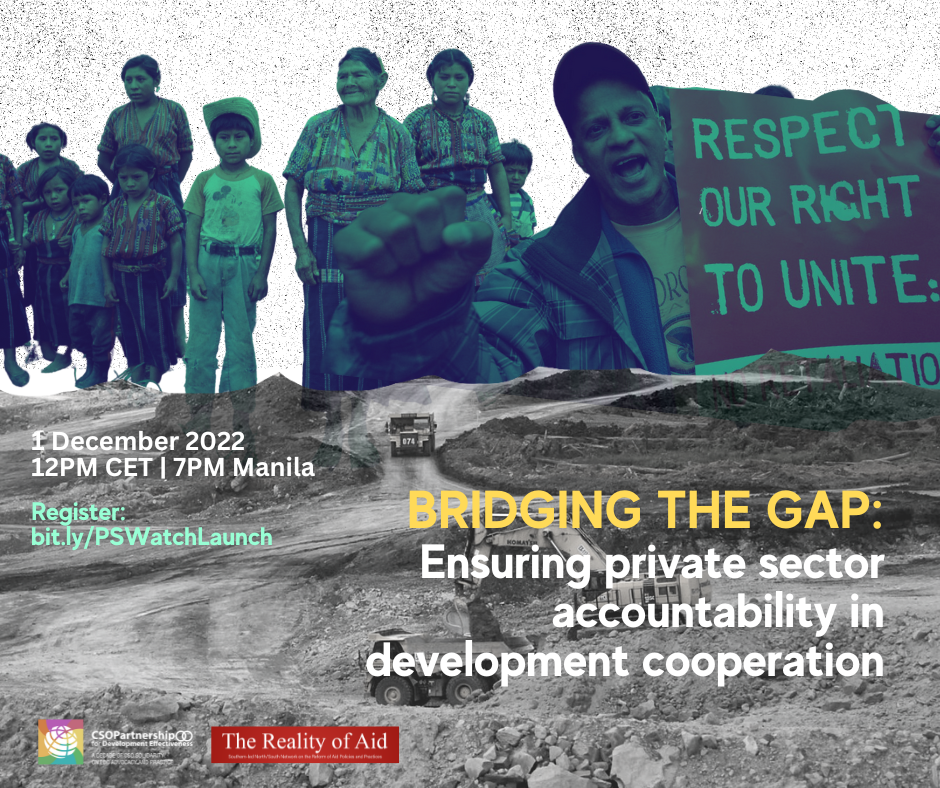News and Events
Development Cooperation, Development Effectiveness, Development Finance, International Finance Institutions, OECD-DAC, RoA Asia Pacific
As the pandemic was able to shine light on the gaps of the current approach to development, there is opportunity to forward alternative paradigms that are able to reflect people’s realities on-ground and can exact accountability from development actors. With heightened vigilance, sustained engagement with development actors and solidarity with CSOs and social movements, a transition to a people-centered and rights-based development approach is possible. The Asia-Pacific region is in a critical juncture as it
As Asia-Pacific struggles to cope with COVID-19, a global recession, and existing development challenges, it is imperative that aid must be used effectively and efficiently. Initiatives for monitoring and analyzing the quantity and quality of aid in the region must be scaled up in order to ensure the transparency and accountability of donors and development institutions. Impacts of development projects that serve to worsen existing inequalities must also be exposed, as the vulnerable and marginalized
CSO Partnership for Development Effectiveness, Development Cooperation, Development Effectiveness, Global Partnership for Effective Development Cooperation, RoA Asia Pacific
The Global Partnership for Effective Development Co-operation (GPEDC) organized the 2022 Effective Development Co-operation Summit (or HLM3) last December 12-14, 2022 at Geneva, Switzerland. The summit gathered hundreds of ministers, policymakers, civil society representatives, private sector representatives, and other development actors to tackle and address development challenges that plague the world today. As the Asia region remains to be at the forefront of these crises, the regional constituency of the CSO Partnership for Development Effectiveness
With the recent visit of US Vice President Kamala Harris in the Philippines, the G20 Summit in Indonesia, and the APEC Summit in Thailand, the Asia Pacific region continues to be under the dominance of world powers such as the United States and China. The two superpowers’ tug of war in the region and their tactics to gain strategic alliances will inevitably lead to disproportionate impacts on the marginalized. Disguised as initiatives for cooperation, assistance
CSO Partnership for Development Effectiveness, Development Cooperation, Development Effectiveness, Events and Meetings, RoA Global
In recent years, the private sector has emerged as a key development actor, as it is given a role in defining, pursuing and financing development. With this, there is a need to ensure that private sector entities promote responsible business behavior in development cooperation, promoting accountability, adhering to the development effectiveness principles and upholding the human rights-based approach. In this context, CPDE’s initiative on private sector engagement (PSE) is two-fold – monitoring existing PSE projects
Agenda 2030, CSO Partnership for Development Effectiveness, Development Cooperation, Development Effectiveness, News, RoA Asia Pacific
In preparation for the 2022 Effective Development Cooperation Summit in Geneva, Switzerland in December, civil society organizations (CSOs) from across the Asia-Pacific gathered for a two-day conference to discuss the state of enabling environment for CSOs in the region and the Triple Nexus approach to conflict. Organized by the Asia constituency of the CSO Partnership for Development Effectiveness (CPDE), Reality of Aid-Asia Pacific (RoA-AP) and Sustainable Development Foundation (SDF), the activity was titled “Regional conference
SITEMAP
Research and Publications
RoA Reports
CONTACT
Global Secretariat
3F 114 Timog Avenue
Quezon City, Philippines 1103
+63 2 8927 7060 to 62 loc 201, +63 02 7007 0249
secretariat@realityofaid.org
KEEP IN TOUCH
STAY UPDATED






